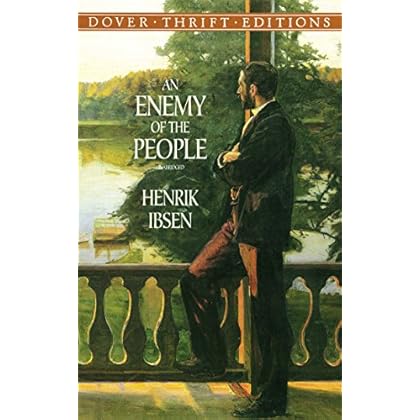An Enemy of the People (Dover Thrift Editions)
Category: Books,Literature & Fiction,Dramas & Plays
An Enemy of the People (Dover Thrift Editions) Details
Widely regarded as one of the foremost dramatists of the nineteenth century, Norwegian playwright Henrik Ibsen (1828–1906) brought the social problems and ideas of his day to center stage. Creating realistic plays of psychological conflict that emphasized character over cunning plots, he frequently inspired critical objections because his dramas deemed the individual more important than the group.In this powerful work, Ibsen places his main characters, Dr. Thomas Stockman, in the role of an enlightened and persecuted minority of one confronting an ignorant, powerful majority. When the physician learns that the famous and financially successful baths in his hometown are contaminated, he insists they be shut down for expensive repairs. For his honesty, he is persecuted, ridiculed, and declared an "enemy of the people" by the townspeople, included some who have been his closest allies.First staged in 1883, An Enemy of the People remains one of the most frequently performed plays by a writer considered by many the "father of modern drama." This easily affordable edition makes available to students, teachers, and general readers a major work by one of the world's great playwrights.

Reviews
The play itself is terrific, if infuriating. Ibsen did a terrific job illuminating how communities struggle to balance short-term economic interests with long-term health and prosperity, as well as the difficulty of having public debate about scientific issues when most people don't understand the technical details well enough to make their own informed judgments about relative risk and consequences. Replace "tainted water in the public baths" with "climate change" and you see how relevant this play remains today.However, this translation is not great. It often reads like a transliteration, with clunky turns of phrase that may be more precise matches to the original Norwegian but don't sound at all natural in English. The result is that much of the dialogue in this translation feels overly formal and stilted, not the dynamic and vigorous discussions that I suspect were intended.


